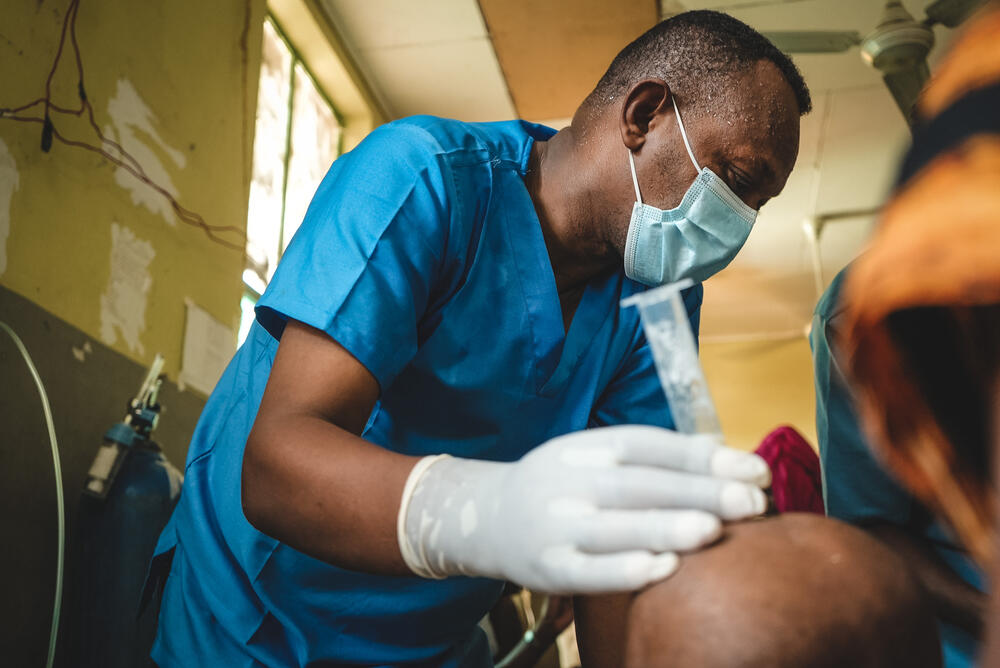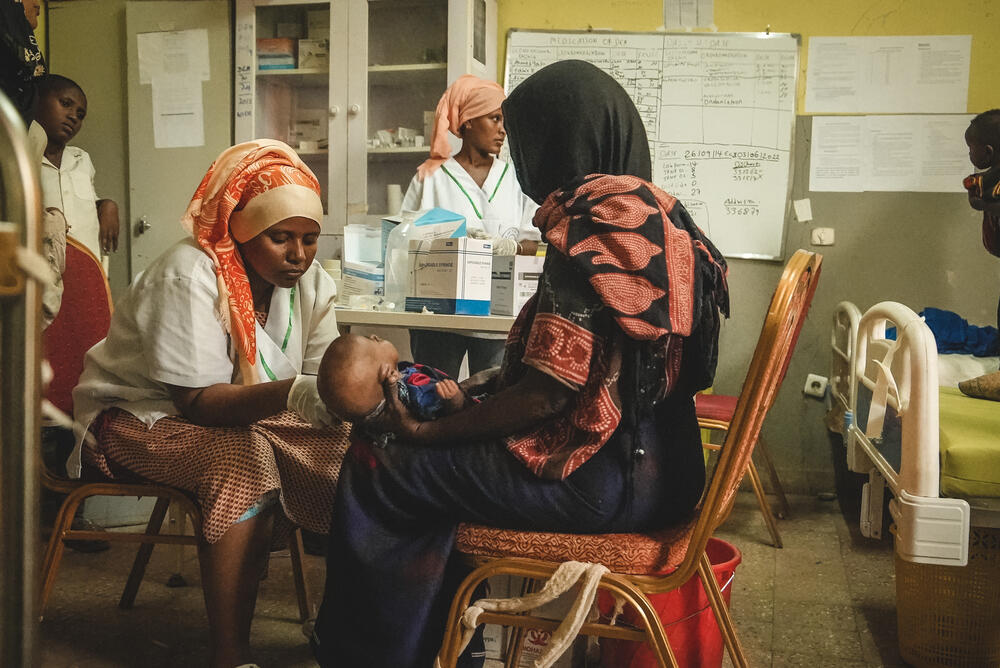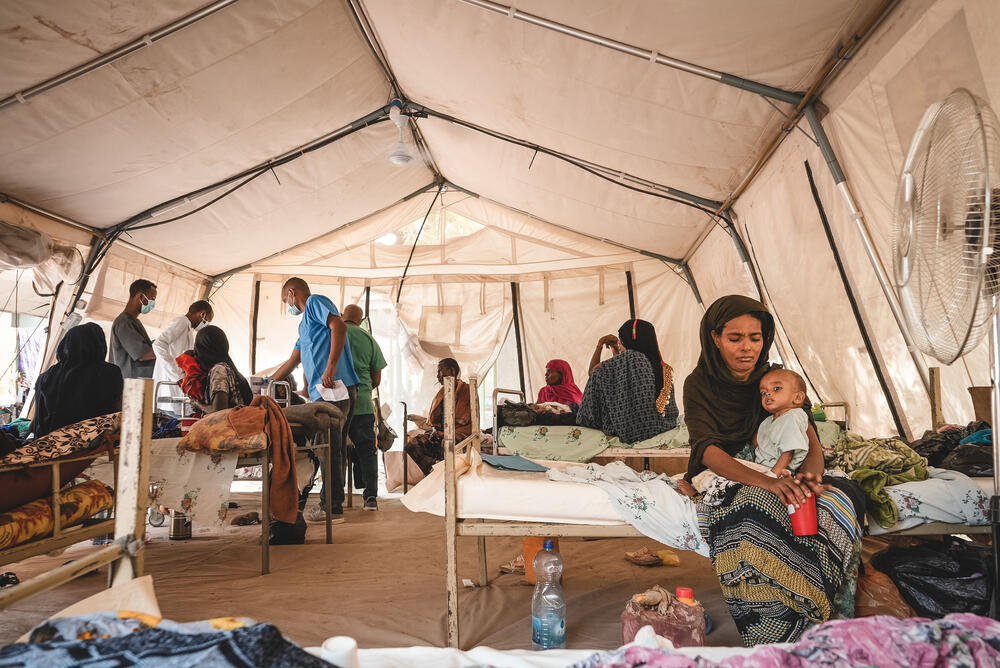Ethiopia: MSF witnessing deadly and escalating nutritional crisis
In Ethiopia’s Afar region, Médecins Sans Frontières / Doctors Without Borders (MSF) is witnessing alarming indications of a deadly and escalating nutritional crisis – requiring an urgent and increased humanitarian response.
Hundreds of thousands of people have fled to Afar during the recent conflict, only to find themselves grappling alongside local communities with drought, hunger and a shocking lack of access to healthcare and clean water.
“What scares us most at this point is that we are only beginning to see the very tip of the iceberg and already it is overwhelming,” says Raphael Veicht, MSF Emergency Coordinator in Addis Ababa, Ethiopia.
“In Dupti Hospital, which is the only functional referral hospital in all of the Afar region, we are seeing children arrive after incredibly long and difficult journeys. Far too many are dying within 48 hours because they are too sick and too malnourished to have a fighting chance at survival.”
Staggeringly high mortality
Since April, MSF has been increasing its support to Dupti Hospital, which serves a population of more than 1.1 million people including hundreds of thousands of displaced people.
This year, the number of severely malnourished children admitted to the hospital is up to four times the number seen in 2021. Patient mortality rates are staggeringly high, exceeding 20 percent in some weeks.
Thirty-five children have died in the last eight weeks alone and more than two-thirds of those patients died within 48 hours of admission.
“Clearly, many people in Afar cannot access the very minimum levels of healthcare, food and water necessary to sustain human life. This is due to a combination of recent conflict, displacement, lack of access to healthcare, food and water scarcity, combined with an insufficient humanitarian response,” says Veicht.
“To even begin to get control of this, major humanitarian assistance is urgently needed for displaced people and vulnerable host communities, with food security, primary healthcare, nutrition and water as key points of focus.”
Damaged hospitals
Damaged, destroyed, abandoned or under-resourced, it is reported that only 20 percent of healthcare facilities in the Afar region are functional.
At Dupti Hospital, more than 80 percent of malnourished children admitted for treatment have had no previous access to healthcare before arriving at the referral hospital. Other patients tell MSF they struggle to access basic needs, leading to increased levels of malnutrition and life-threatening illnesses.
“The site where we are staying is extremely harsh and uninhabitable,” says Asiya Salih Mohammed.
Many people from her community died in the conflict and she was forced to travel by foot for over a month in search of safety.
Now, she has arrived at a site for displaced people that lacks even the most basic provisions, including a medical centre, which is why she has brought her one-year-old daughter to Dupti Hospital.
“There is not enough food to eat, there is no drinking water,” she says.
“The house in which we are staying has no roof, so we have no shade and we’re exposed to the sun.”

Help us prepare for the next emergency
Overwhelmed wards
The impact of these conditions is apparent among the patients in Dupti Hospital, where nearly two-thirds of malnourished children requiring hospitalisation come from displaced families, driving up admission rates.
After MSF started its support for the hospital’s 14-bed feeding centre in April, the ward was quickly overwhelmed with two or more patients in each bed. Teams then opened 14 additional beds across temporary units, however, these are now fully occupied, too.
Medical staff have been struggling to provide the level of care children need in this overcrowded feeding centre. And, recently, the regular paediatric ward has also been overwhelmed.
“In two days alone, we saw 41 children admitted to the paediatric ward with severe stomach infections because people are forced to drink from muddy puddles,” says Veicht.
MSF has recently agreed with the Ethiopian Ministry of Health to increase the hospital’s paediatric, in-patient feeding and emergency department capacity. This includes the rapid construction of new buildings and sanitation support with the establishment of a reliable water source.
In parallel, MSF plans to open five out-patient feeding programmes in the most critical areas of Afar. However, much more is needed to hold back a looming crisis.
An urgent humanitarian crisis
Hundreds of thousands of people are struggling to survive not only in Afar but also in other parts of Ethiopia. This is the dire consequence of the ongoing nutritional crisis and a surge in the need for food and humanitarian assistance.
For example, in Wardher in the Somali region, although the rains have finally arrived people are still experiencing the challenges of food and water insecurity following a catastrophic drought. Communities have warned that the extended drought has killed off livestock and other vital lifelines for survival, while healthcare is often out of reach.
Here, MSF recently completed a measles vaccination campaign reaching more than 7,000 children in 50 different locations and has implemented a medical surveillance programme to quickly react to emergency needs.
Of course, the only response to a nutritional crisis is to make sure that people have access to food. However, many people in Afar and other parts of Ethiopia – especially those displaced by conflict – also don’t have access to other essentials for sustaining life.
Without an urgent increase in the humanitarian response, many people already living through the horrors of conflict, displacement and drought will be further pushed towards the brink of survival. In order to avert further illness and mortality, the humanitarian community must act.
MSF and malnutrition
Nine children die every minute because their diet lacks essential nutrients.
When children suffer from acute malnutrition, their immune systems are so impaired that the risk of death is greatly increased.
According to the World Health Organisation (WHO), malnutrition is the single greatest threat to the world’s public health. Globally, there are more than 232 million children suffering from malnutrition.


